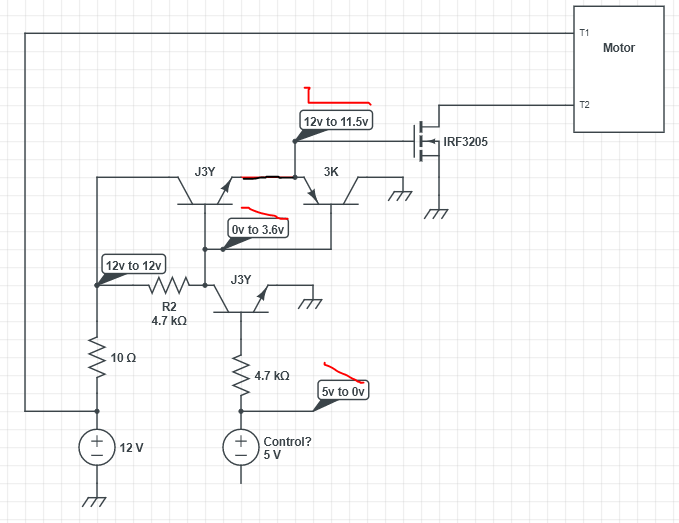I'm trying to repair a DC motor controller that moves a caravan. The positive side is relay switched, and it turned out that the negative side of the motor supply was switched by a pair of IRF3205 MOSFETs on each side (two motors, four MOSFETs) and all the MOSFETs were damaged. I've replaced them, and one channel works well, but the other channel only works if I use the multimeter to briefly power on the gate line. I read that if a MOSFET is damaged it can damage the drive circuitry for the gate, so I started tracing back from the gates. The board is symmetrical so even though I don't really know what I'm doing, I can compare the working side to the broken side
I've pictured the two sides of the board and overlaid the tracks with the voltages I've measured, with blue for 0v, orange for 0.8v, purple for 5v and red for 12v - key of exact colors in the centre of the image. The working side is on the left (gate line is 12v when the board is on):
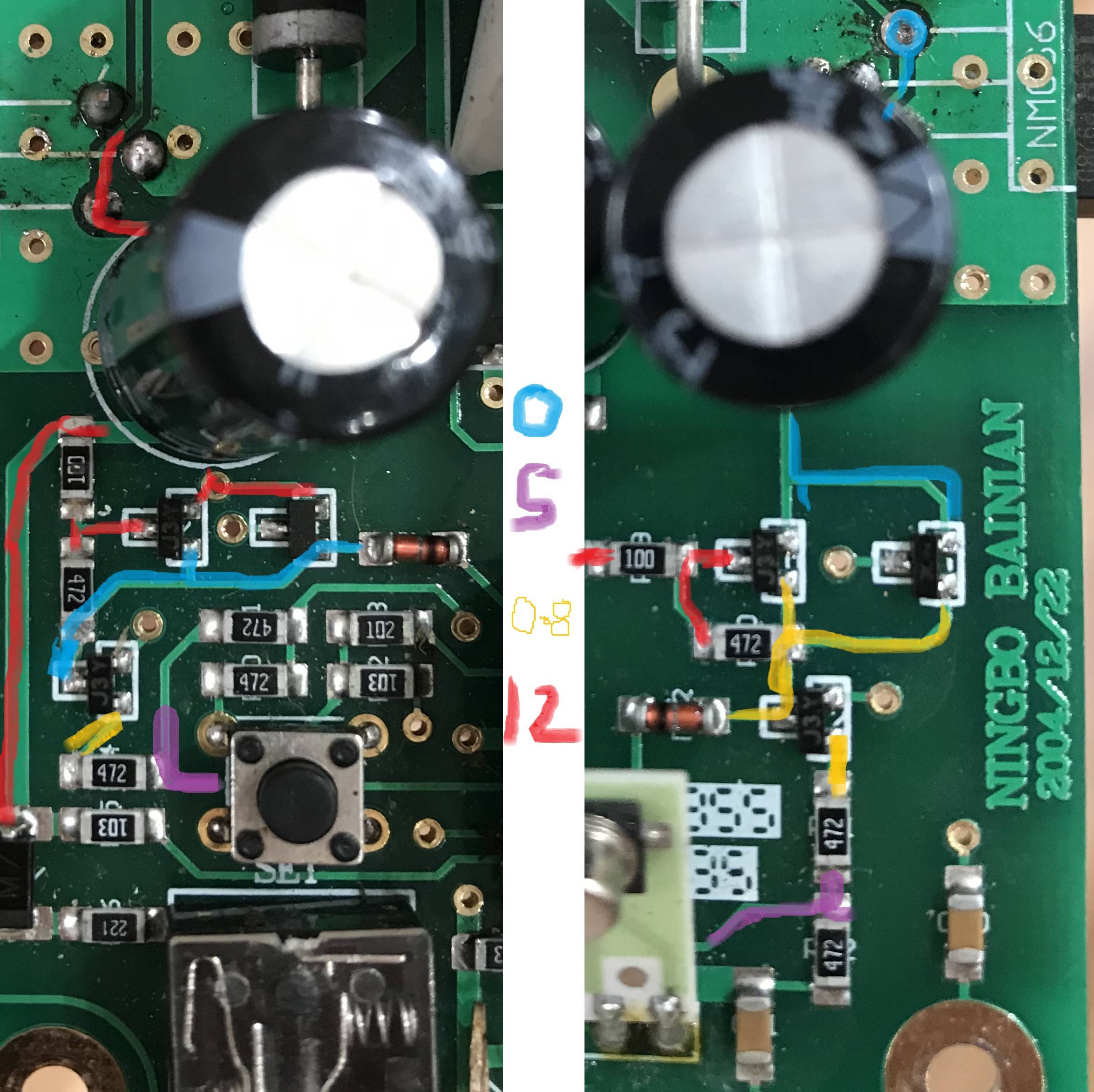
There's a difference that seems to arise between the transistors with J3Y written on them; between the colletor pf the lower and the base of the upper, on the working side I measure 0v and the broken side I measure 0.8v. Would this reasonably be the cause of the problem? Which component gives rise to the difference?
I'm a bit stuck for time in getting an exact replacement so I'm wondering if I can raid a PC power supply (of which I have a couple, and appear to contain a few transistors) for something that will work similarly. Here's a pic of what I have (I've a couple of power supplies, this is one):
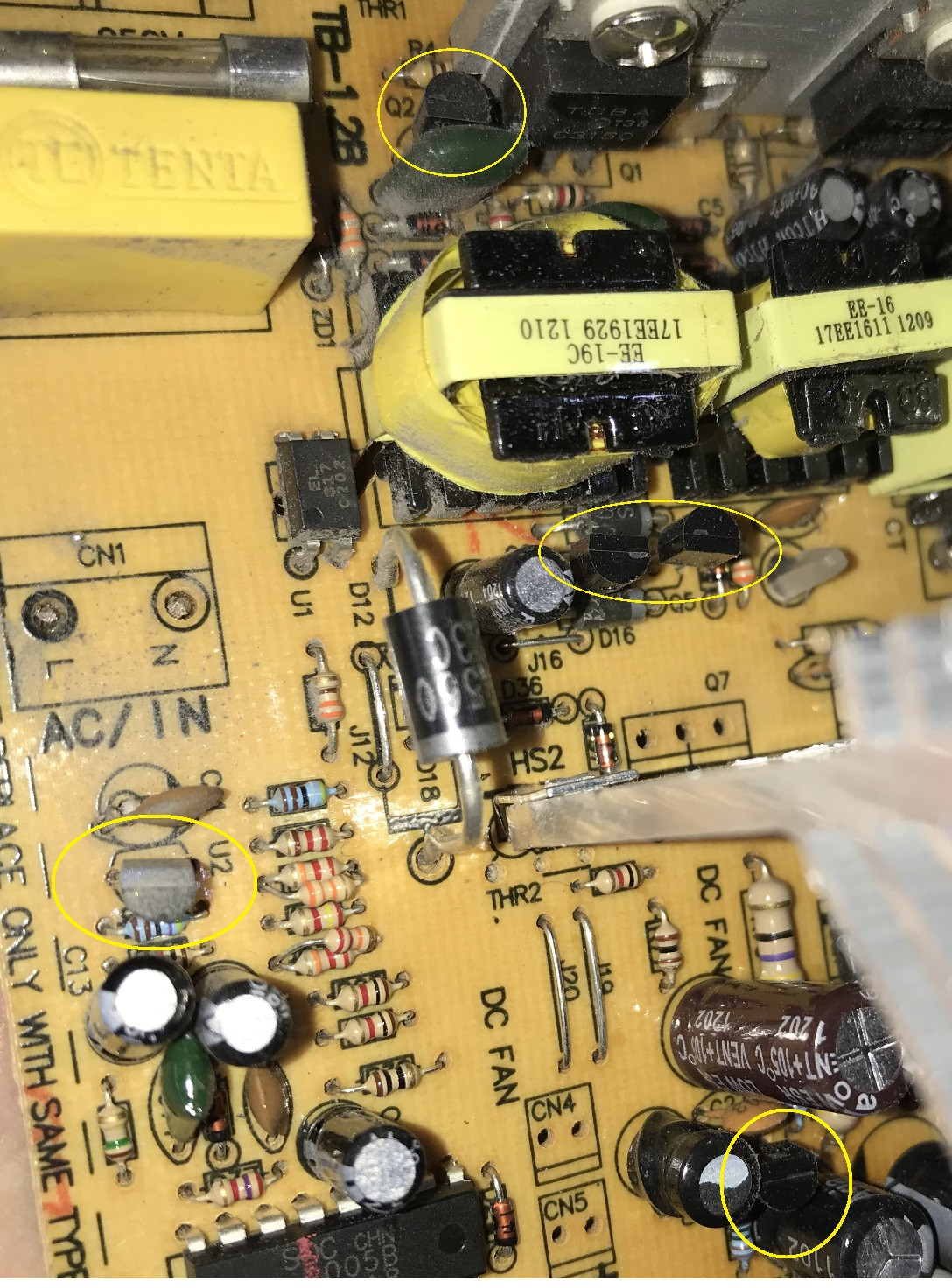
The transistors in the supply aren't surface mount style but I figure I can probably shape the legs so they'll perch.. I just don't know what I've got or how to check it's compatible. In the PSU some are labelled as Qx and others are labelled as Ux, I don't know if this is significant. I'm assuming I'll need to pull all the components and look up the numbers on them to find out more about them (PNP/NPN) etc ,but how do I know if one is a compatible replacement for a J3Y? What figures off the datasheet are relevant?
Edit
Here's a schematic as best I've been able to determine from the datasheet descriptions of which leg is which on a 3JY. Feels like something isn't right here because falstad sim claims the gate line doesn't get 12v, but on the board is does, so perhaps it's too incomplete a fragment?
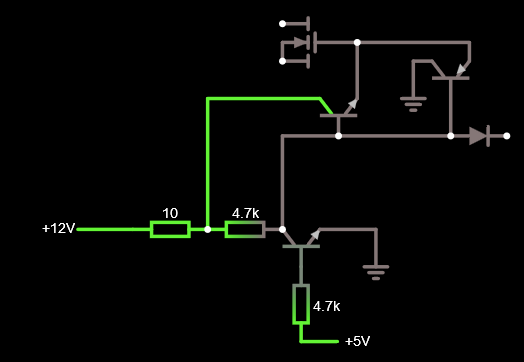
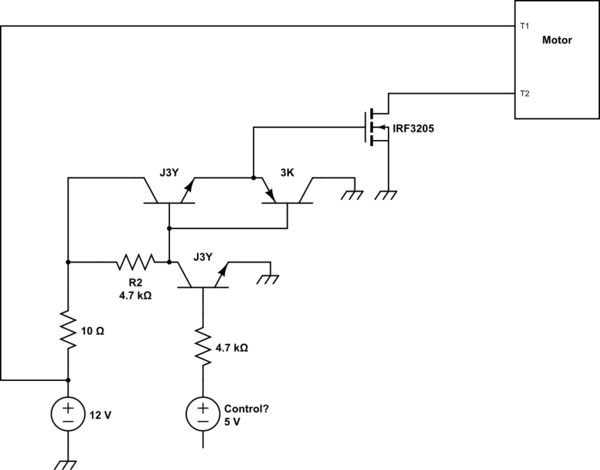
simulate this circuit – Schematic created using CircuitLab
The 3rd transistor in the pictures - in the right one the tran nearest the word BAINIAN, seems to have a problem. I think it's a PNP (the one on the left hand side of the board has 3K written on it and then what looks like |)() rotated 90 degrees) but I can't see the full code because there is a hole blown in the surface where I guess K should be, and then a 2 rotated 90 degrees.. I think it's a BC858B - this is what I get from looking up the one on the other side of the board at least..

